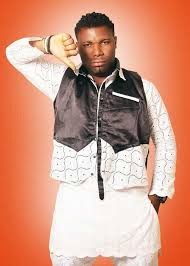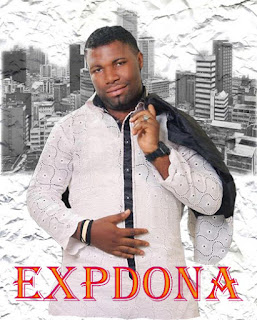 The way the West (North America and
Western Europe) understands democracy is this: First, one party can
never be too good to win elections continuously for a long time while
others are consigned to being in the opposition; second, one person
cannot be too good to win elections for more than two tenures, least of
all to continue “winning” until the person dies in office.
The way the West (North America and
Western Europe) understands democracy is this: First, one party can
never be too good to win elections continuously for a long time while
others are consigned to being in the opposition; second, one person
cannot be too good to win elections for more than two tenures, least of
all to continue “winning” until the person dies in office.
Therefore, any time the West sees an
opposition party beat a ruling party or an incumbent president, it sees
such as true democracy. That was why President Barack Obama visited
Ghana in 2009, the first sub-Saharan country he visited as the United
States’ president. He described Ghana as a model for African democracy.
The party of former President Jerry Rawlings, the National Democratic
Congress, had lost the presidency to the New Patriotic Party in 2000. In
2008, the NDC beat the NPP to regain the presidency.
In
Nigeria, this year’s victory of the All Progressives Congress, led by
Muhammadu Buhari, met the idea of the West of what true democracy
represents. The full-hearted concession of defeat by the then President
Goodluck Jonathan also added the icing on the cake. That act deviated
from the usual African trend that causes conflicts and deaths. Many
Africans have said that the way Nigeria’s election and handover went
smoothly made them proud and gave other countries a good example to copy
rather than the negative political narratives that usually emanate from
Africa, where power is seen as the breath of life to cling to with
desperation.post by expdonaloaded.blogspot.com..If Jonathan had won the presidential
election – no matter how transparent and credible the election was – the
world would have treated the result with some measure of disdain and
scepticism, because he was in power and his party, the Peoples
Democratic Party, had been in power since 1999.Therefore, Buhari is coming in at a time
the world is feeling happy with Nigeria and wishing that Nigeria’s
democracy would continue to mature and get less acrimonious.
Secondly, Buhari is coming in with the
image of a sanitiser. In spite of the gradual rise of Nigeria in the
transparency index of Transparency International in the last few years,
the country is still seen as one where corruption is rife. It is not
just corruption in political circles, it is also corruption that
permeates the daily dealings of the common people.
Buhari has been known as a man that lives
a simple life. He has not been known to have amassed wealth during his
public service. Therefore, he is seen as the Hercules that would clean
the Augean stables. His challenge would be his ability to achieve
tangible results now that he is not a military ruler that can enforce
things by decrees and coercion.
The third reason is that there is renewed
hope that Nigeria is about to be rebuilt. One big challenge Jonathan
faced was that most of those who opposed him could not draw a line
between opposing him and opposing Nigeria. As far as they were
concerned, any news item that was positive about Nigeria conferred some
political advantage and popularity on Jonathan. Therefore, they worked
hard to ensure that such positive stories about Nigeria were downplayed
or pooh-poohed. That was why any attack by Boko Haram anywhere in
Nigeria was usually hyped but any success recorded against the Boko
Haram was either glossed over or ridiculed. Many Nigerians preferred to
give Niger Republic or Cameroon credit for successes recorded by the
Nigerian military. Even when other countries made fun of Nigeria, such
people saw it as a minus for Jonathan and joined in the ridicule or
vilification of Nigeria.
But with Buhari, the language of such
people has changed. One can hear them these days saying things like:
“Let us pray for Nigeria; God bless Nigeria; It is well with Nigeria,”
etc. Such an attitude motivates a leader.
The flip side is whether those who oppose
Buhari’s Presidency will adopt this same attitude of castigating
Nigeria in the name of making the President unpopular. But true patriots
draw a line between criticising their government and ridiculing their
country. In all situations, the nation should come first before party or
candidate.
However, that renewed hope that Nigeria
will be rebuilt puts enormous pressure on Buhari. The people are
virtually expecting magic from Buhari. Patience is not one virtue
Nigerians are blessed with. Lagos football fans would praise the
Nigerian national team for the 20 minutes of the first 45 minutes and
then start chanting: “All we are saying – give us one goal!” If by the
second half the team has not scored a goal within 15 minutes, then the
Lagos fans may turn against them. That is the way Nigerians react to
their political leaders. So, Buhari should start with the
easy-to-prosecute assignments and get quick results that will sustain
his popularity. In management, it is better to underpromise and
overperform than to over-promise and underperform. Buhari and the All
Progressives Congress over-promised and raised the people’s
expectations. The onus is on them to ensure that those expectations are
met as quickly as possible. Even though Nigerians are impatient people,
they can also show good understanding if they see that there are honest
and concrete efforts towards achieving results. They can also be easily
wowed with little achievements and populist actions and words. Leaders
who understand the psyche of Nigerians would give them such
intermittently.
Buhari is coming in with the media on his
side. So, he will be getting good headlines and photo captions.
Suggestions and ideas will be offered to him. Some of his negative
actions and inactions will be downplayed for a while so as not to be
seen as antagonistic. But the honeymoon will not be long. It is in his
hands to make the honeymoon last as long as possible by the type of
policies and pronouncements he makes.
Finally, Buhari’s victory and Presidency
will offer the nation the opportunity of seeing what the APC has to
offer. Nigerians now have the opportunity to taste another party.
Nigerians can then compare and contrast the PDP with the APC and decide
which is sweeter. Also, the PDP’s loss will purge it of all traces of
arrogance. For the first time, the PDP has become the opposition party.
If a president like Jonathan was not in power during this last election,
such might not have happened. In spite of the victory, the APC knows
that it cannot be complacent. For decades, Nigerians had hungered for
the power to be able to sack and recruit their leaders, but they were
denied that right until recently. The improvement the Independent
National Electoral Commission added to our electoral system was also
important. The power of godfathers deciding the winners of elections was
drastically reduced. But that did not entirely eliminate electoral
fraud.
Buhari has the onerous task of ensuring
that the electoral system under him is better than whatever Jonathan
left behind. That will start from his choice of the replacement for Prof
Attahiru Jega, whose term as INEC chairman expires this June, and the
amount of independence he grants the electoral body. Buhari should not
be concerned with using INEC to make APC win the governorship elections
that will take place next year in Ondo and Edo states as well as the
general election in 2019. His concern should be to perform so well that
the electorate will prefer his party during elections. That is true
democracy.
Power has been handed over to the
electorate. Buhari is a beneficiary of that novelty. He must nurture and
strengthen that for the good of Nigeria.
Click photo to download; but you lied to me by Expdona aka finish gravity




No comments:
Post a Comment